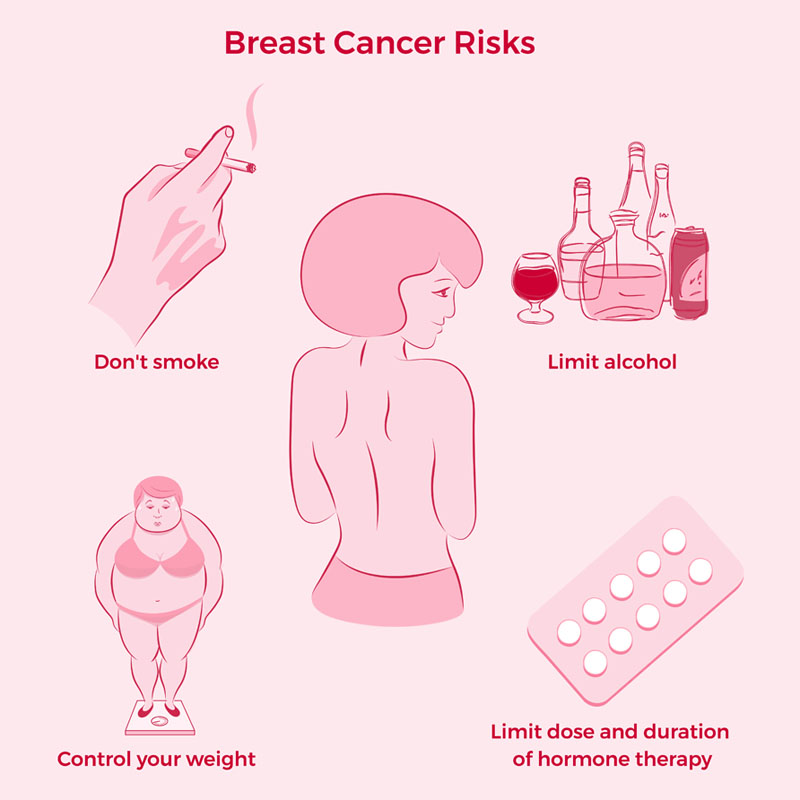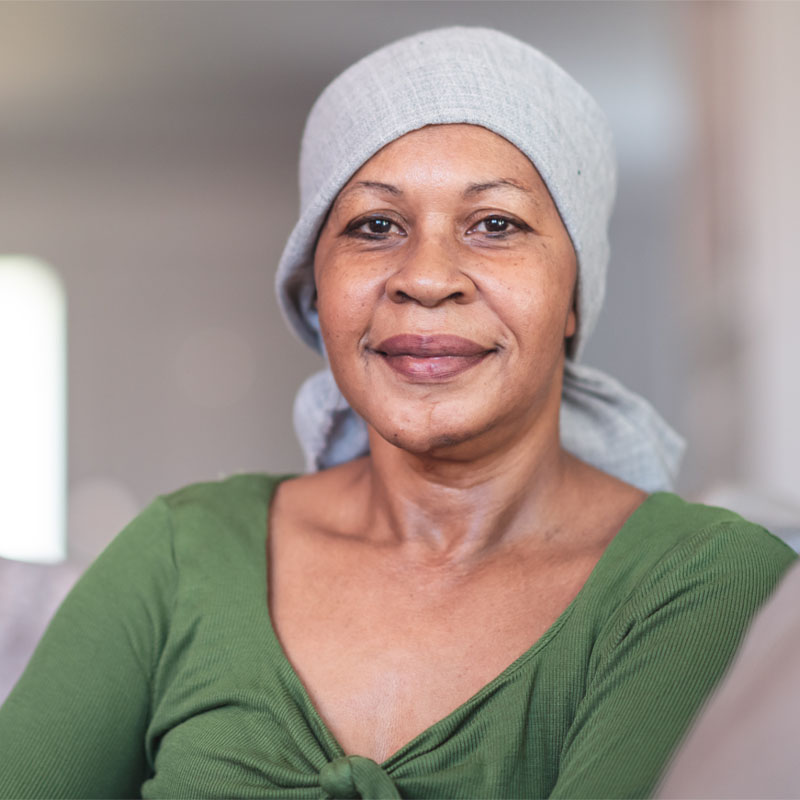Am I at Risk for Developing Breast Cancer?
A risk factor is anything that impacts an individual’s chance of getting a disease, in this case of getting breast cancer. Some factors that put you at risk are in your control and you can change, such as your diet, and some things put you at greater risk that are not in your control, such as genetics.
It is crucial to speak to your doctor about any concerns you may have regarding breast cancer. Your doctor may recommend lifestyle changes and/or other approaches to help lower your risk of developing breast cancer.
Changeable Risk Factors Include:
It is important to speak to your doctor about any concerns you may have in regards to breast cancer. Your doctor may recommend lifestyle changes and/or other approaches in order to help lower your risk of developing breast cancer.
- Binge drinking or drinking more than a small amount of alcohol
- Being overweight or obese, especially after menopause.
- Living a sedentary lifestyle
- Unhealthy diet

Unchangeable Risk Factors
- Gender: Women are at greater risk of developing breast cancer. The risk of a man developing breast cancer is significantly lower.
- Age: Your risk of developing breast cancer increases as you get older. About 2 out of 3 invasive breast cancers occur in women 55 years of age or older.
- Genetics: About 5% to 10% of breast cancers are hereditary. This means the cancer is caused by a gene mutation, which was passed down from a parent. The BRCA1 and BRCA2 genes are the most common causes of hereditary breast cancer. Breast cancers caused by these genes are more often found in younger women and can affect both breasts. In the United States, BRCA mutations are more common in Jewish women of Ashkenazi (Eastern European) origin; however, they can occur in anyone. Genetic testing can be done to find such mutations. If you are considering genetic testing, it is important to speak with a healthcare professional prior to see if it is the right option for you.
- Family History: The risk of breast cancer increases in women who have a relative on either their mother’s or father’s side of the family who has or had breast cancer. However, less than 15% of women who have breast cancer have a family history of the disease. Therefore, the majority of women who get breast cancer have no family history at all.
- Personal History: A woman with breast cancer in one breast has an increased risk of getting new cancer in another part of the same breast or the other breast. This is not the same as the return of the first breast cancer.
- Race and Ethnicity: Caucasian women are more likely to develop breast cancer, but African American women are more likely to die from it. The risk of developing breast cancer in younger women is higher for African American women as well. The risk of developing and dying from breast cancer is lower in Asian, Hispanic, and Native American women.
- Breast Density: Women with dense breast tissue have an increased risk of developing breast cancer. Age, menopause, pregnancy, genetics, and some drugs may affect the density of breast tissue.
- Benign Breast Conditions: Some women with a benign breast condition have an increased risk of developing breast cancer.
- Exposure to Diethylstilbestrol (DES): DES was an estrogen-like drug given to some women in the 1940s through the 1970s. If you or your mother (while she was pregnant with you) took DES, it may have increased your chance of developing breast cancer.
- Menstruation: If you had your menstrual cycle start before the age of 12, you may have an increased risk of developing breast cancer.
- Menopause: If you started menopause after 55 years of age, you may have an increased risk of developing breast cancer.
- Previous Chest Radiation: If you were treated with radiation therapy to the chest area as a child, you may have an increased chance of developing breast cancer.
- Recurrent Breast Cancer: Breast cancer that comes back after initial treatment.

